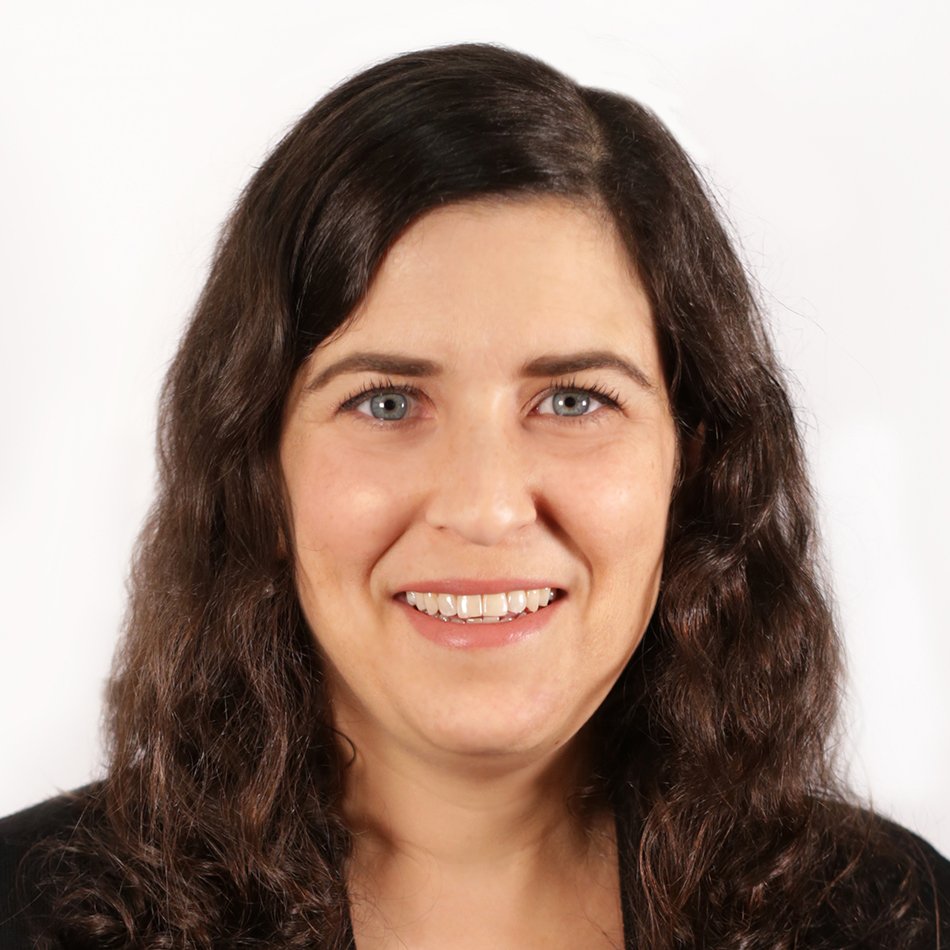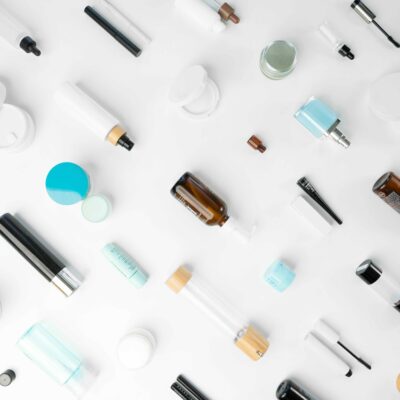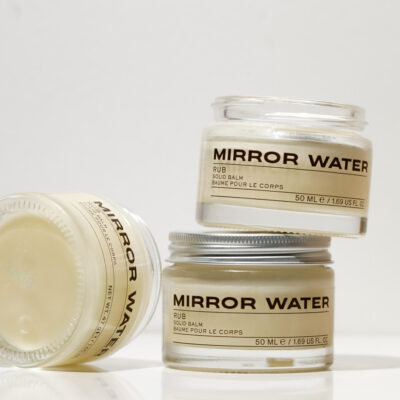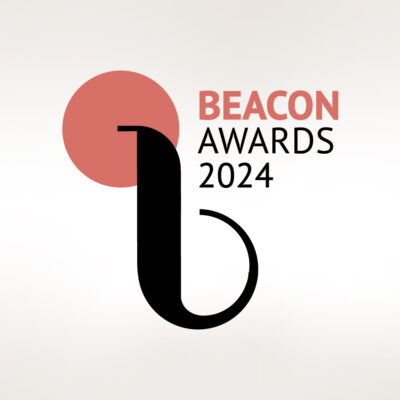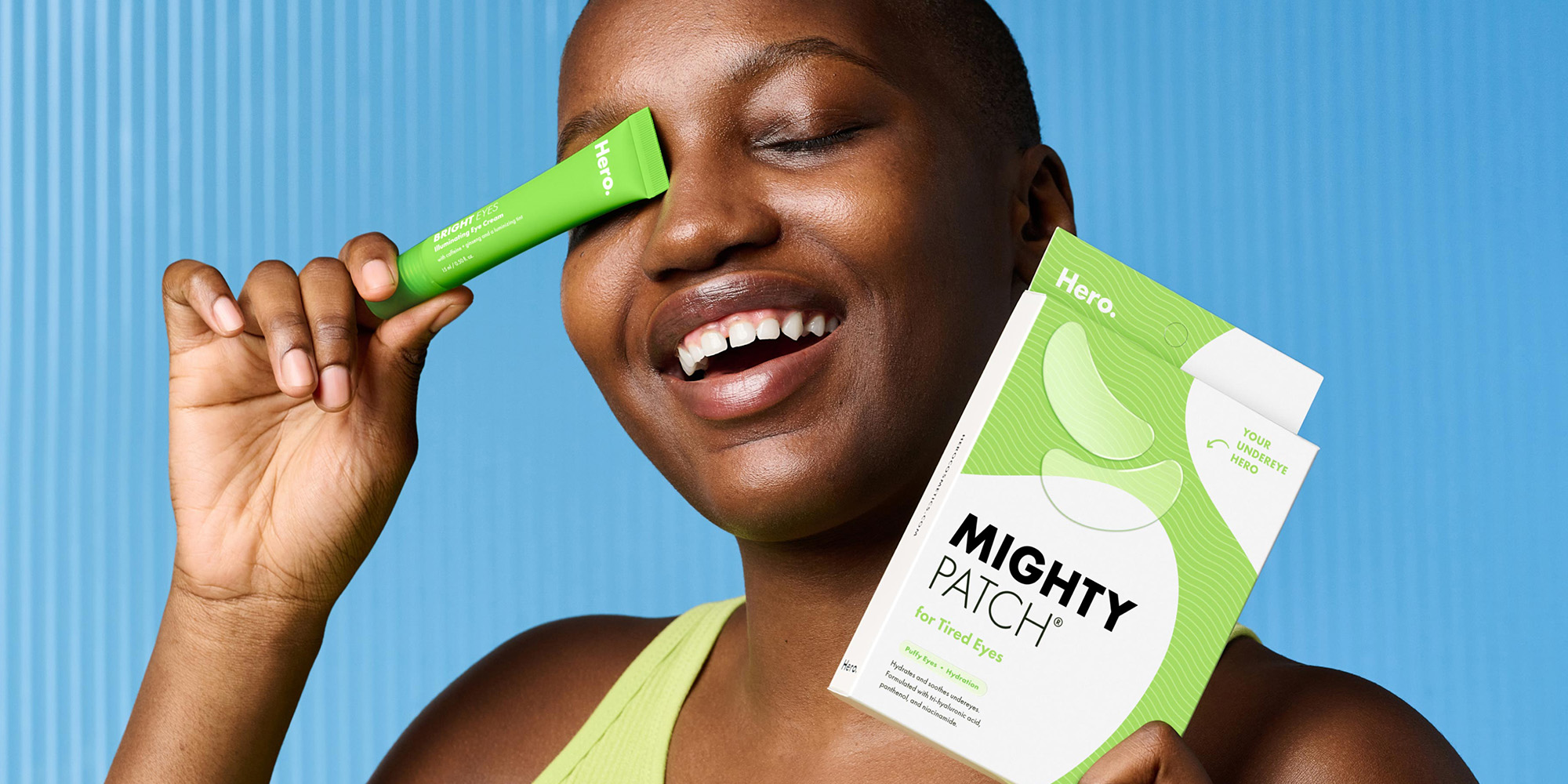
Co-Founder And CEO Ju Rhyu Tells Us Great Advice She Got Before Hero Cosmetics’ Big Exit—And Shares Some, Too
Seven years into its business, Mighty Patch maker Hero Cosmetics has become the No. 1 acne patch brand on the market, sold over 1 billion acne patches and reached 25,000 doors at retailers the likes of Target, Walmart, CVS and Ulta Beauty. A Mighty Patch box sells every two seconds or, in another indicator of its acne routine pervasion, almost 50,000 boxes sell per day.
Today, Hero Cosmetics is owned by Church & Dwight, which acquired the company in 2022 for $630 million. Co-founders Ju Rhyu, Dwight Lee and Andrew Lee have remained with Hero Cosmetics to help ensure it doesn’t lose its entrepreneurial gusto as it navigates the consumer packaged goods environment as part of a large corporate entity and broadens its revenue streams beyond acne patches while maintaining the power of its, ahem, hero acne patch product.
According to data provided to publication Women’s Wear Daily, 70% of Hero Cosmetics’ customers arrive at the brand via Mighty Patch, and 60% will go on to try more of its products. Among the brand’s recent product launches are Glow Balm Radiant Skin Stick, Pore Purity Clay Mask, Mighty Patch for Tired Eyes and Bright Eyes Illuminating Eye Cream.
“My role as the founder is to think, not just even five years, but in 10 years, what would this brand be or where could it be?” says Rhyu. “Right now, we’re the No. 1 acne patch brand by far in the category. We’re all really excited about that and that’s great, but I have that paranoia where I’m like, OK, but what happens if one day the category is saturated or someone else comes in? We always have to be on our toes.”
In advance of Beauty Independent’s trade show Uplink Expo next week, where Rhyu is speaking on a panel with Michal Berski, founder of Curlsmith, which was acquired by Helen of Troy for $150 million the same year Hero Cosmetics was acquired, we talked to her about when she began considering an exit, what she didn’t realize was important to have in preparation for it, a great piece of advice an investor gave her, the pros and cons of a strong hero product, beauty industry trends, her approach to investing, and why she thinks brands’ lifespans could be shrinking.
Beauty M&A has been pretty hot starting late last year. Barbara Sturm, K18 and Dr. Dennis Gross Skincare have been acquired. What’s your read on what’s going on?
In 2023, obviously there was really not much going on, and people were approaching M&A with a little bit more trepidation, but around June or July it seemed like the cloud started clearing. The markets were getting a better understanding of where rates would end up. Everyone’s assuming that they’re going to start coming down later this year. People are getting a lot more confident that we’re avoiding a recession. All that gives everyone a little bit more confidence to pick up the M&A activity that they stalled on for the first half or three quarters of 2023.
Hero Cosmetics entered the mass market at retailers like Target and Walmart, but you didn’t start the business targeting mass, did you?
The idea was we just want to be where people buy acne products. For us, it made sense to be in mass because that’s where the majority of acne products get purchased both online and offline. I didn’t necessarily want our brand to be prestige because that limited the number of people that we could get our solutions to. We didn’t set out specifically to build a mass brand. It was, who are the end buyers, where are they, where do they shop? We focused on that in the beginning.
I wanted it to be accessible in terms of price points. I definitely wanted everything under $19.99 if possible. We launched with one SKU, Mighty Patch. It was a category that didn’t really exist except that there were some Korean acne patches that were selling in the U.S., which served as a benchmark. Those were I think under $10 at the time back in 2017, and that anchored us a bit.
What does it take for a mass beauty brand to exit versus a prestige beauty brand?
The revenue threshold is higher. What I’ve heard is that prestige, if you get to $30 or $50 million in revenue, you would be considered acquisition ready. In mass, from my understanding, the revenue hurdles are probably $ 80 million to $100 million. The other side of that is you have a lot more distribution channels in mass. Not that it’s easier to get to $80 million or $100 million, but you have more places to sell and a large audience to sell to. It’s a higher threshold, but you have more opportunity to get there.
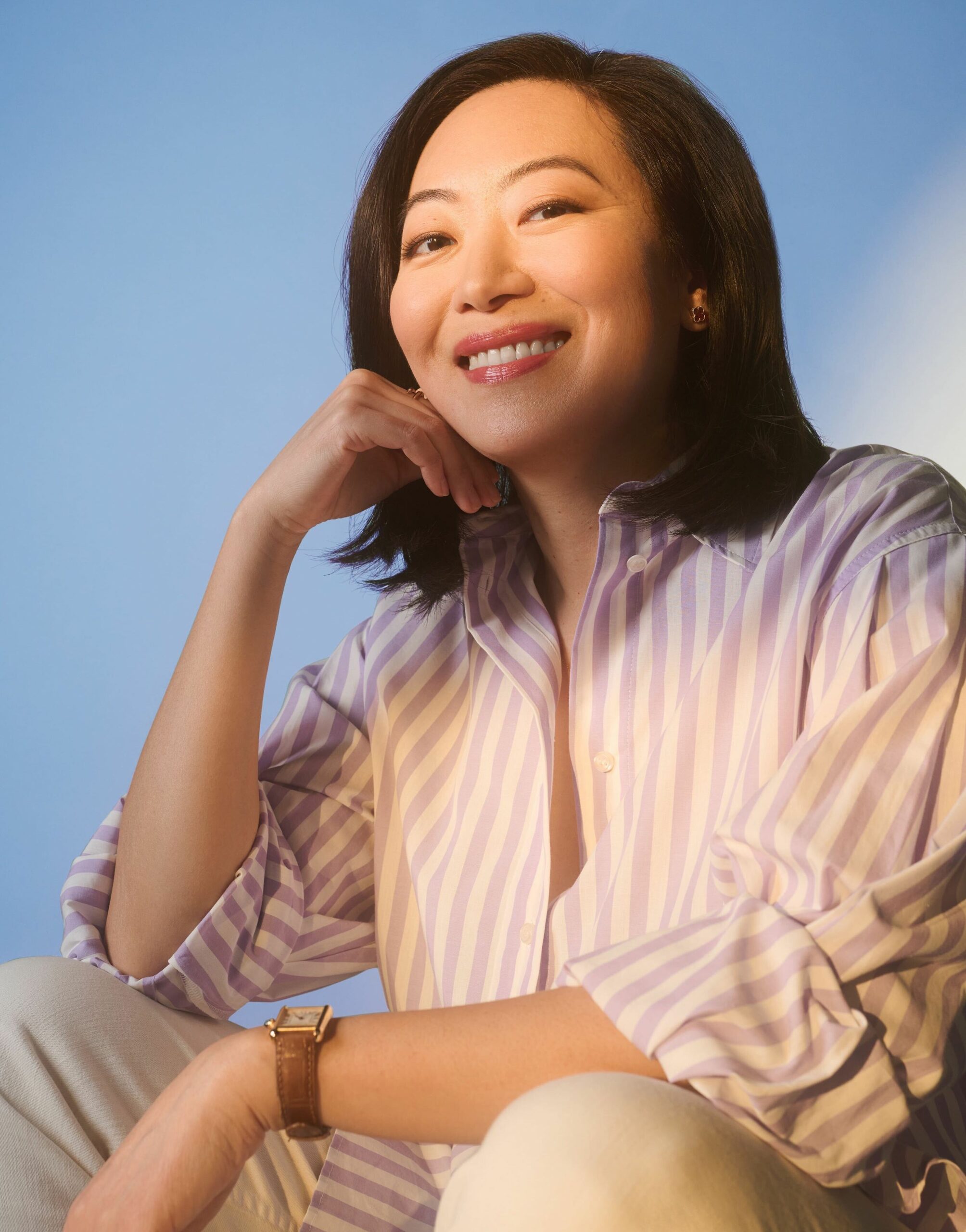
There’s such a focus on profitability now. In practice, what does that look like?
We launched in 2017, and profitability wasn’t as important as it is now. If you’re going to build a business that has longevity, it has to make money. At some point it has to because otherwise how will it sustain itself? When we started Hero, that was really important to me. I was at this conference and someone was like, “I can’t believe profitability was ever not prioritized.” It’s weird to think that there was a period where people didn’t care about it because that’s how a company exists.
It was very intentional for us that this business be able to stand on its own two feet. The problem with having too much money is you can cover a lot of your mistakes or flaws in your business model with extra money, and I didn’t want us to do that. What did that mean for us? It meant having really good product margin. When I talk to founders, that’s always the thing I really zero in. If product margins are not strong, it just makes the rest of your P&L very, very challenging.
Sometimes there’s a startup period where you don’t have the scale, so your margins aren’t as strong as they could be. Of course, you take that into consideration, but, for me, it really starts at the product level. How profitable is each product? Then, downstream on the P&L, you are better able to manage other costs.
Masstige skincare has been a strong category. Last year, there was the Naturium acquisition and Goop’s skincare brand launched at Target at higher prices than have been traditional for mass. Why do you think masstige skincare has seen the growth it’s had?
People are getting more educated about beauty. It’s not just reserved for trendsetters and the prestige or luxury market as people are on social media and reading about ingredients, efficacy and why we need to wear SPF. It just opens up the pool of consumers, and it really does grow the category.
Retailers in mass have done a really great job leaning into that. Target has done a really good job in terms of merchandising, educating and making a place of discovery. It’s really fun to go to your local Target and see what’s new and trending.
Price points are starting to go a little bit higher. Everyone’s trying to be price conscious, but, especially with beauty and personal care, the desire to invest in yourself is so strong that people are comfortable pushing up the price points. There is a certain amount of inelasticity where you can push retail price points and people will still buy because it’s an investment in yourself. People are willing to pay to do that.
When did you start thinking at Hero Cosmetics of putting the company on the path to exit?
Practically speaking, I have two co-founders. They’re related to each other because they’re brothers, but they’re not related to me. Sometimes when you have a co-founder situation where you’re not family, it’s more natural that there’s going to be a handoff of a business so that each party might go their way.
If it’s a family business, it can stay in the family and pass it down to generations. For us, it was not that way. Even at the beginning, we always thought probably at some point we would sell the company and exit. But, at the beginning, we didn’t know what we had. We were just testing product-market fit and trying to find the right channels.
We had a lot of momentum pretty quickly. We knew we’re onto something. When we brought on Aria Growth Partners, who were the investors that did our growth round in 2020, that was when it was very intentional. We were profitable, so we didn’t need the money, but we knew we were on this path to a potential exit, and we needed people smarter than us who could help us. We raised money less for the money than really, where do we go from here? How do we make sure we are good stewards of the business that we have and can get it to an exit?
What were the discussions with Aria like about possible exits?
They actually prepared maybe a 100-page deck in terms of how they saw the business and what they saw as the most logical path, which was really helpful because it gave us an execution roadmap for the next few years. What I didn’t realize was important is your leadership team. So, one of the first things that we did together was hire a VP of sales, VP of marketing and VP of finance. As a leadership team, we all were in the management presentations when we were in the exit process.
A lot of strategic buyers, when they look at a business to buy, they will look at the team to see whether they have the talent and the infrastructure to continue on because they want that. They sometimes don’t want their own executives coming in and changing things around. They want the existing team, so they want to know that you have the deep bench. Even if the founders move on, you want that legacy and the continuation of knowledge. We hired pretty quickly after the round.
Hero has a very strong hero product in Mighty Patch. How did you think about sales coming through that product versus diversification?
There are two edges to the sword. People will say, “You need to hero product.” It’s great to be known for a hero product, but I didn’t want us to be just the Mighty Patch. We’ve been really intentional about lifting up the brand name, which is Hero. Sometimes people think our brand name is Mighty Patch. No, we’re Hero Cosmetics. So, we had to be more intentional about really building up the Hero brand name and adding on different SKUs so that we could be more than just the Mighty Patch.
It actually works great because the Mighty Patch does act as the acquisition engine for the brand, and then we can upsell different solutions. They all work well together. I’ve always wanted the topicals part of our business to have equal footing, but right now we’re doubling down on our strategy of making sure that the awareness and the acquisition does come through the patch line, and we continue with that upsell strategy.
You’ve done a good job of planting Hero Cosmetics in different areas at Target. How did that happen?
It was our VP of sales. This is where having the right team will transform our business. She came from Sun Bum, where she had a very similar strategy. Her goal was, I want someone to trip over us in the store. We started out in premium skincare, and we had been in the minis, but pretty soon after she joined us, she got us side-caps and endcaps, and then we were in the checkout lane. We just really started moving around in the store. That has a halo for the entire brand. That’s a strategy that we take as much as we can to every retailer we launch at.
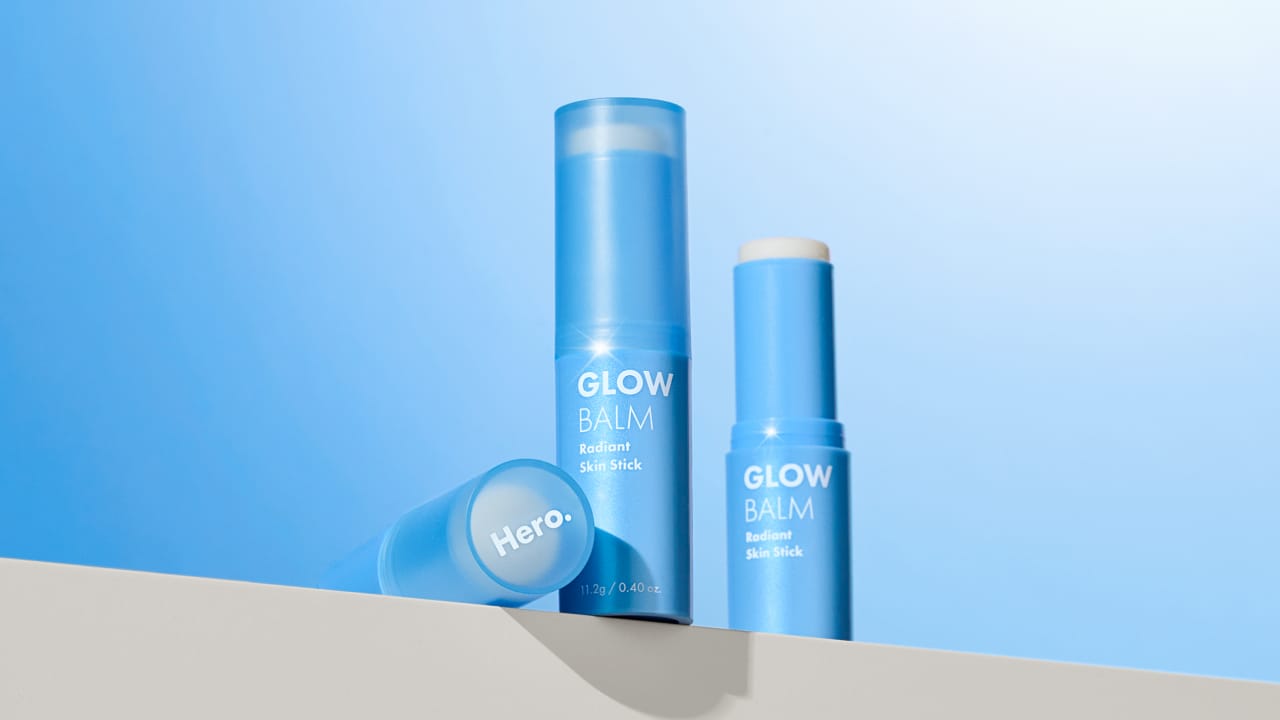
Now that you have experience both in a big corporation and entrepreneurial venture, how do you think big corporations can sustain entrepreneurial brands and maintain their nimbleness while also bringing in the structure of being in a larger environment?
It’s a balance, for sure. By the nature of being in a more corporate environment, there are things that will lose speed because the regulatory scrutiny is at a different level. But as much as strategics and bigger corporate companies can keep the team, the spirit and the culture, that’s definitely really important. That was really important to us as founders. If we did an acquisition, any partner we worked with, we were like, you have to keep the team because that is so much of what makes our magic.
If they can keep them fairly independent, it can be a really good move, too. The systems can change things for a startup. People have different philosophies around that. Some are like, we need to integrate. Some take more of the approach of keeping them separate. We’re doing a hybrid where the team is separate, then we did a backend integration, and that’s working.
It’s just really identifying what helps with making the magic at that indie brand and making sure that you nurture it, keep it separate and try to find the ways where the brand might benefit from the resources or the systems of the bigger company. I don’t think there’s any right way.
Hero jumped on Amazon early at a time when brands were more hesitant to embrace Amazon. What do you think of brands’ relationship to Amazon now?
We used to be mostly Amazon. Now that’s switched to mostly wholesale retail, but Amazon is still a very, very large business. I’ve spoken to other founders who have been hesitant to try Amazon. I spoke to one particular founder who sells at Sephora, and she told me, “We launched Amazon recently and within months we’re doing more in terms of revenue than we do in a whole year at Sephora.”
I still think the Amazon opportunity is yet to be fully uncovered. I think people are still trying to figure out how to make it work because it is a totally different skillset than DTC or retail, but more willing to try it out because there are a lot of brands that have been successful on it and the consumer base is huge.
We did it all in-house. That was actually a skillset that was very interesting to potential buyers. I understand why brands will outsource it to agencies, but it’s a knowledge that we have that we think is very valuable. We’re happy to share it with the Church & Dwight family now.
We’ve been covering the phenomenon of tweens flocking to Sephora for Drunk Elephant and other brands. What trends are you watching in the market?
I was at Sephora here in LA. I was blown away that the line at Sephora was literally 8- or 9-year-old girls. I was like, “What are you doing here?” A friend of mine was like, “Someone should just create a brand for them. Instead of them buying Drunk Elephant, they should create a tween brand for them.” They’re not going to want that. They want grown-up products and brands. Someone just told me her 10-year-old niece wants Tata Harper cream for $100 or something. That’s what they want. They want the aspirational element.
Sometimes prestige brands, they get a lot of the buzz, but I think there’s still a lot of opportunity to be untapped in mass just because there’s a larger consumer set there. The retailers are doubling down on beauty because they see it working well. Perhaps it has been a little bit neglected compared to prestige relatively in terms of M&A, but I bet we’ll see some more there.
I know a lot of people are talking about a return to efficacy, which I agree with. I think there’s room for a new dermatologist brand actually. I would love to see a new kind of Dr. Dennis Gross, but maybe with a twist. That could be something cool. There could be something really interesting in post-treatment care. Because the treatments are starting younger and a lot more people are getting them, that could be a really interesting white space, too, whether you sell it at the treatment center or whether you sell it in retail.
You’ve invested in brands in an angel capacity. What’s your approach to investing?
I’m still figuring it out. It’s funny because, after I’ve gone through the M&A process with Hero, the way I look at investment opportunities now is very, very different. Probably most of the brands that I angel invested in before I would not do again or I would not have done just because I see things really differently now.
There are some categories that I did like fashion and apparel which I probably wouldn’t do again because it’s much harder with sizing and returns, and there’s a big trend aspect and seasonality to it. So, that was a learning. These days, I’m less inclined to go earlier. There’s so much that can happen early on.
I’m just trying to take some time to learn where I might fit in the whole life cycle. These days, I’m going a little bit later. I’m investing alongside a venture capital or private equity. Usually if I’m co-investing with a private equity fund, they’re at least $10 million-plus in revenue.
There are a lot of founders that, after they’ve had some success, they might immediately become an investor, but I think it’s a different skillset. Just because you’re a good operator doesn’t naturally make you a good investor. It’s all a big experiment for me.
You just mentioned the trend cycles in fashion, but what about the trend cycles in beauty?
It’s gotten a lot shorter. I was talking to someone who has a beauty brand. He’s like, “Maybe I’ll just keep it forever and start acquiring and tucking brands under it.” It makes sense, but in beauty where the trend cycles are getting shorter there’s just more risk. In 30 years, things could be so different. Maybe a brand that existed for 30, 40 years now it’s going to be more like 25 or 20.
Speaking of shorter cycles, Hero Cosmetics was founded in 2017 and sold five years later. There are brands like Aesop and Dr. Dennis Gross that were around longer before they exited. Where do you think the exit timeline is heading?
Every business is really different, and I’m no banker, but if I were advising a founder, I’d say, “You should build a company and expect to be in it for at least 10 years.” That’s more normal. Us, Naturium, K18, that’s very unusual probably. Even for myself, if I were ever to do something again, I would not anchor it on in five years I’m going to sell. I would be thinking of it more as a 10- to 15-year process.
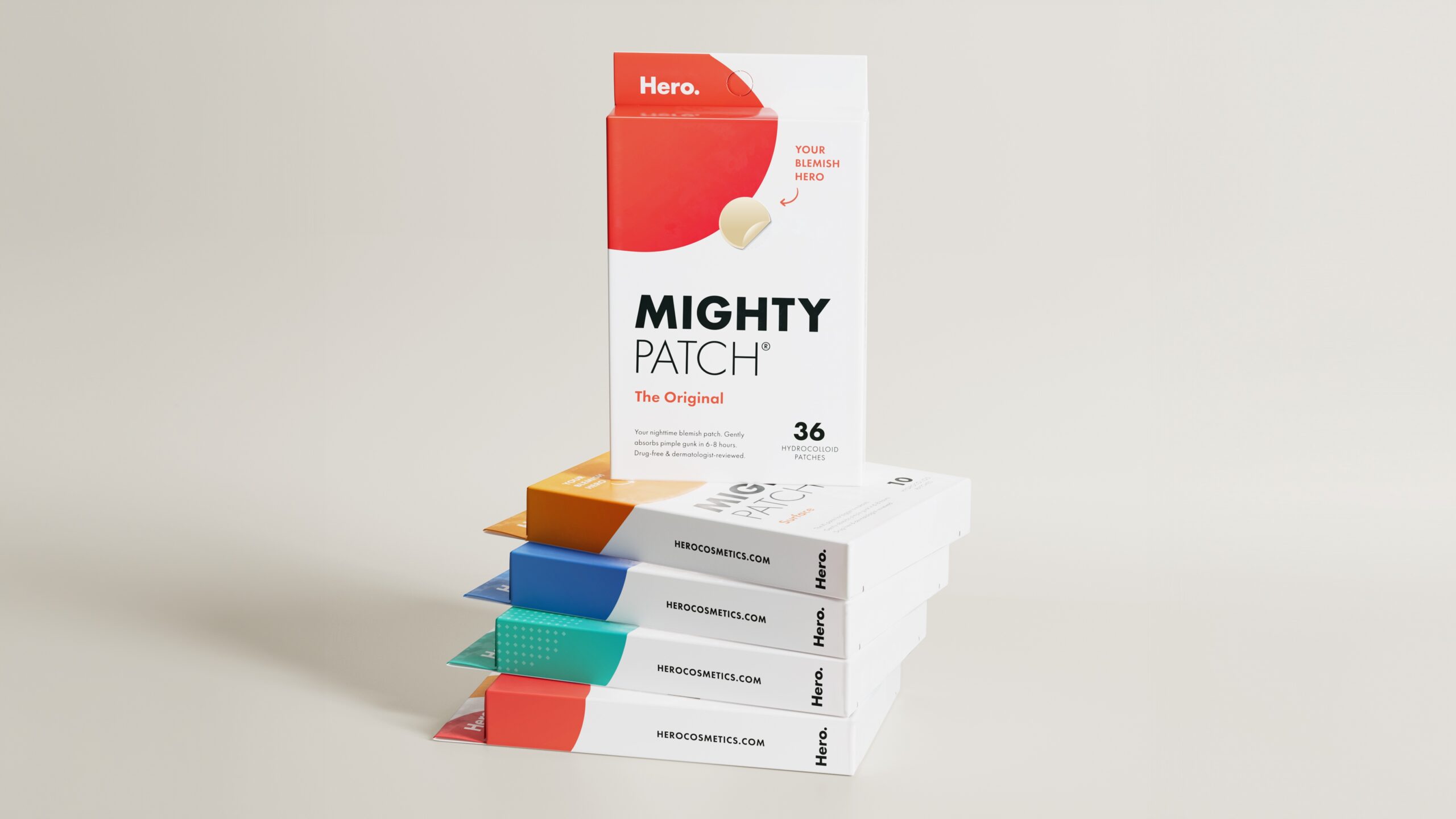
You’ve always been open to talk to founders and give them advice. Do you put any boundaries on that?
I definitely want to be helpful, but there’s a limit in terms of how many calls I can do. I usually at a minimum offer a reply to questions by email because that I can do quickly. Not every call has to be a call, it can be an email exchange.
I’ve been thinking about how to scale myself in a way. I was doing more on social media, which I haven’t had time as much for, but it’s something that I’ve been thinking about. Would I do more on TikTok just so I don’t have to answer the same question 10 times from 10 different people, I can point them to one place?
What’s a decision you made early on that you think was very important for Hero?
We launched with the Mighty Patch Original, and when I could see that it was getting traction, I wanted to launch another SKU. I wanted that SKU to be a wash-off face mask. I started down that process. Then, I was having coffee with an investor, and I was like, “I want to do a wash-off mask.” She said, “No, don’t do that, you should stick to your patches. Go deep into patches, do them in every size for every need in different shapes, just own this category.”
That’s what we did. We came out with Invisible+, Surface, we have a variety pack. It was excellent advice, and I’m glad that we took that advice because I think that’s what allows us to maintain our leadership in this category. If we had moved too quickly to other formats, I think we would’ve lost some of that leadership in the patch category, which today we’re known for.
What’s something you would change about the beauty industry?
I mostly only have positive things to say about people in the industry. They’re so nice. The one thing that I might change is, once people start seeing dollar signs, sometimes it changes a lot. That’s what we’ve seen in the last few years where there have been a lot of successful brands and exits. Money starts pouring in, and it changes the landscape.
People’s motivations can change because maybe they’re doing it less for providing a real solution to people and more just like, oh, I’m going to have an exit, and I want to make my money. We’re seeing more players on the investing side, too, because people see this category as a category where they can make money.
You recently moved from Paris to Los Angeles. Why?
It’s partly a personal decision because, during COVID, my husband was getting sick of city life. We were in a smaller apartment, it’s kind of noisy. We were both open to a lifestyle change. Then, when we sold the company, me being technically a U.S. employee, but living in France potentially could have caused some tax issues. So, it was actually part of our contract that I moved back to the U.S. within a certain time period, which was totally fine because we were thinking about doing that anyway.
The sun is amazing in LA. There’s an amazing beauty community here. I’m really excited to start getting plugged in, seeing some familiar faces and meeting new ones. There’s a great beauty scene in France too, and a lot of them I’ve become very friendly with. I plan to go back and continue those relationships.
